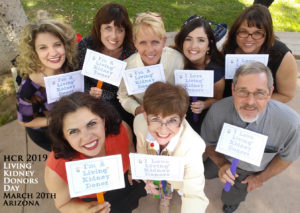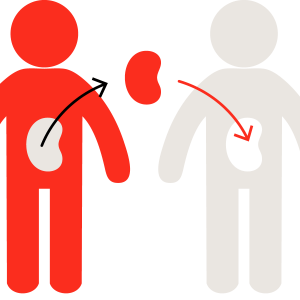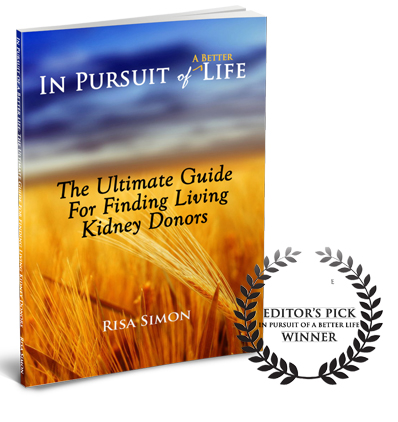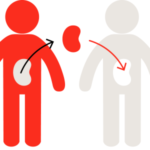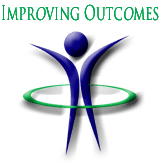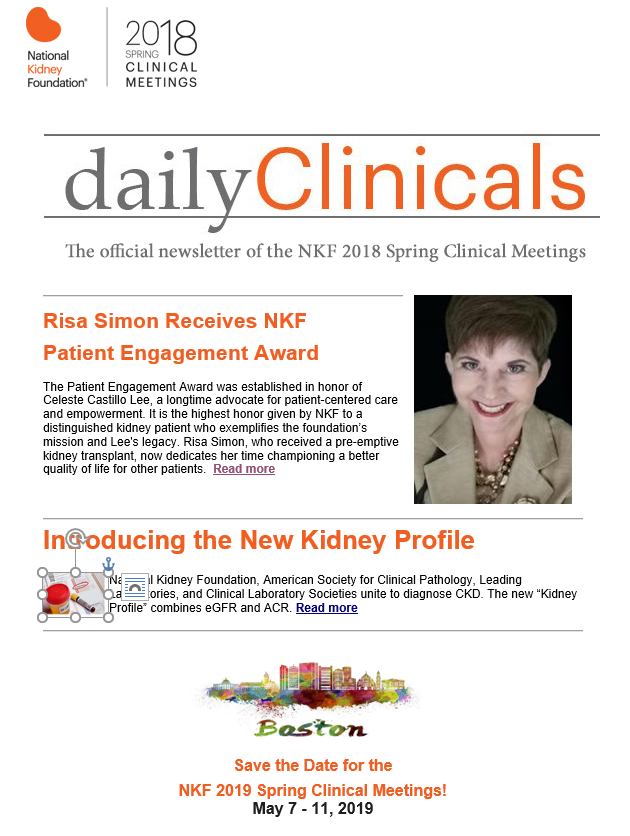With much of our upfront focus centered on receiving a transplant, it comes as no surprise that our attention to our life after transplant is often left to “afterthought” management. Yet, the duty of becoming a transplant recipient claims ownership to an enormous responsibility that must not be overlooked or undermanaged.
Most of the responsibility has to do with becoming more mindful of all the “do’s and don’ts” associated with staying healthy and keeping our newly adopted kidneys functioning well and for as long as possible.
One of the most significant life changes after transplant deals with taking lifetime immunosuppressant medications. These medications are essential to ensure transplanted kidneys don’t reject. This daily requirement requires a delicate balance between adequate immunosuppression and minimizing risks for infection and disease.
Keeping Yourself Safe & Out of Harm’s Way
As a former infection control specialist, this responsibility came somewhat natural to me. To others, however, this new way of life of being more careful, can be somewhat daunting. Of course, if washing your hands often and using barriers to open and close public doors is your thing, these protective practices are more instinctual. While you don’t have to be a germaphobe, you do need to become overly cautious.
For me, wearing a mask in public has become fairly common practice. When traveling on a plane or even waiting in the reception room at the doctor’s office, you’ll most likely find one on my face. You can also find me at the grocery store or pharmacy with a mask during high flu season.
Of course, this is my choice and not a requirement post-transplant. Most transplant patients simply need to be more cognizant of their surroundings by being more observant. Washing hands often, using barriers to open doors and carrying a bottle of hand sanitizer may be sufficient. Though, staying clear of anyone who may be sick, has recently been sick or has been around anyone who is or has been sick should be a standard operating procedure.
Educating family and friends about the importance of these protocols makes life a lot easier. It is extremely helpful when people close to you are willing to be extra cautious. I consider it a huge gift to have someone tell me in advance of a get-together, that they may need to cancel plans because they could be putting me at risk. Let your friends and family know that their forethought is immensely appreciated.
Medication Management
The most critical aspect of post-transplant life is taking required medications as described. Likewise, it’s essential to show up for all follow-up appointments and have the discipline to repeat recommended blood draws at prescribed intervals to ensure immunosuppression is managed at proper therapeutic levels.
Here’s a short list of top priorities that kidney transplant recipients need to be mindful of:
- Take your medications exactly as instructed
- Contact your transplant team when you experience concerns
- Avoid being around people who are sick
- Drink plenty of water to stay hydrated
- Eat foods low in salt, fat, and cholesterol
- Routinely exercises, as recommended by your doctor
While receiving a transplant is often an exciting life event, recipients can experience unfamiliar feelings while undergoing this major life change. Emotions can include:
- Anxiety
- Stress
- Frustration
- Guilt
Talk About Your Feelings
Do not be embarrassed to talk about your feelings, fears, and concerns. You don’t have to “go it” alone! Chances are if you’re experiencing these emotions, others are too. Talking to others can offer tremendous emotional support. Of course, family members and friends can provide a great support network. However, speaking with more experienced kidney patients can take your conversations to a higher degree of support and understanding.
Connecting With A Mentor
There are experienced kidney patients who receive tremendous joy from helping other patients who are going through what they once went through. These volunteer “mentors” have been trained to help patients like you. Mentors offer a unique way to discuss personal topics that are rarely discussed in the exam room. There’s an almost magical symbiotic relationship created when you share your concerns with someone who understands what it’s like to be in your position.
Mentors are not clinical professionals and therefore do not offer medical advice. What they do offer, however, is real-life experiences that can transcend emotional fear into emboldened patient empowerment. No one knows what you are going through more than someone who has gone through it. Mentoring is typically free of charge and all conversations are kept confidential.
Peer to Peer kidney patient mentoring programs are offered through the National Kidney Foundation, the Polycystic Kidney Disease Foundation and will soon be offered by the American Association of Kidney Patients.
Get Movin’ & Groovin’
Eating healthy and keeping your body moving can help improve your heart and lung health, prevent weight gain and even improve your mood. Talk to your doctor about the type of exercises that may suit you best and the recommended amount of time and frequency for an ideal exercise routine.
Though our kidney transplant surgery was successful, there is always a possibility that our immune system may choose to fight the donated kidney or stop working overtime. The long-term success of a kidney transplant depends on many things. You should:
- Be seen by your transplant team on a regular basis and follow their advice
- Take your anti-rejection medications daily in the proper dose and at the right times, as directed by the transplant team, to keep your body from rejecting your new kidney.
- Follow the recommended schedule for lab tests and clinic visits to make sure that your kidney is working properly.
- Follow a healthy lifestyle including proper diet, exercise, and weight loss if needed
Secure Your Quality of Life
Rejection is a serious complication that may occur after receiving a transplant. Since you were not born with your transplanted kidney, your body recognizes the new tissue as “foreign” and will try to protect you by “attacking” it. This response is why we are required to take anti-rejection medicines for life to prevent the possibility of rejection.
There are two common types of rejection. The first type is known as an Acute Rejection which usually occurs anytime during the first year after transplant and can often be treated successfully. The second type of rejection is known as Chronic Rejection. Chronic rejection usually occurs slowly over a long period of time.
Use this checklist to minimize your risk of rejection and help your transplanted kidney last as long as possible—and at optimum levels of function:
- Make the taking of your medicine part of your daily routine
- Use phone alarms to help you remember when to take your medication.
- Keep your transplant team up to date on your medical history.
- Report medication side effects, like high blood pressure, weight gain, infections, and suspicions of skin cancer.
- Report the sign of infections immediately.
- Minimize exposure to other people who are ill or were recently ill, or exposed to others who have been ill.
- Be sure to keep up with recommended vaccines and avoid live vaccines (Live vaccines can include nasal influenza and shingles). Also, stay clear of people who have received live vaccines for several weeks.
- Practice safe food handling techniques. Wash, peel and wash again.
- Minimize your risks for diabetes, heart disease, cancer, bone disease, high cholesterol, anemia and gout with diet and lifestyle changes. Ask your doctor and renal dietitian for some coaching in this area.
Diabetes Risks
Even if you did not have diabetes before your transplant, you may develop diabetes after transplant. This type of diabetes is called new-onset diabetes after transplant or NODAT. This can occur as a side effect of immunosuppressant medications.
Your risk can be higher if you are obese or have a family history of diabetes, so be sure to be mindful of your diet (minimize carbohydrates) and exercise as well. Likewise, your labs should include glucose readings for high blood sugar levels. These readings can help you identify issues at earlier onsets. Make it your mission to minimize your risk for diabetes and its propensity to cause serious damage to your heart, blood vessels, eyes, feet, and nerves.
Heart Disease Risks
Kidney transplants recipients are at higher risk for heart disease as well. Risk facts increase for those who are: smokers, diabetic or overweight, have high blood pressure, high cholesterol, high blood lipids, and who have been on dialysis for a number of years.
To minimize risks, control your high blood pressure, manage cholesterol and blood lipids, stop smoking, maintain a healthy weight and exercise as prescribed by your healthcare providers.
High Cholesterol Risks
Kidney transplant recipients can also have higher cholesterol and lipid levels in the blood after transplant due to medication side-effects. Weight gain, poor diet, family history or lack of exercise can also increase these risks.
High cholesterol can lead to serious health risks such as clogged blood vessels which increases the risk of heart disease and stroke. Be sure to eat a heart-healthy diet, exercise and discuss lipid-lowering medications with your doctor.
Cancer Risks
Your immune system is key to keeping your body from getting cancer. Anti-rejection (immunosuppressive) medications decrease your immune function and while doing so, they decrease your body’s defenses for certain types of cancer.
There are things that you can do to lower your chances of getting cancer. Skin cancer is the most common type of cancer.
Fair skin individuals, who live in high exposure areas or have a history of skin cancer have an even higher chance of getting skin and lip cancer.
Use these tips to help you minimize your risks for cancer*
- Avoiding direct sunlight
- Staying away from tanning booths
- Wearing UVA and UVB sunscreen protection
- Performing self-examines of your skin and lips regularly.
- Seeing a dermatologist for a yearly exam at a minimum.
*Cervical, breast and colon cancer can also be a risk for female recipients, and prostate and colon cancer can be a higher risk for men.
Bone Disease
Bone disease (also known as chronic kidney disease-mineral and bone disorder or CKD-MBD) can occur from medication side-effects, previous kidney disease, diabetes, smoking, lack of exercise, menopause, or from several years on dialysis.
Check your bone health to ensure you are not at risk for bone disease which can cause weak and brittle bones and increase your chance for fractures. Your doctor can order blood tests and bone density scans. Weight-bearing exercises such as walking, biking and using weights is a good way to increase bone and muscle strength.
Anemia
Following a kidney transplant, you may be susceptible to anemia (low red blood cell count). This can be caused by blood loss during the surgery, medication side-effects, an infection, abnormal breakdown of red blood cells, or organ rejection.
Blood pressure medication can also cause your body to make fewer red blood cells. If you have anemia your doctor may prescribe an iron supplement or other medications. There are many choices for iron pills; if you do not tolerate one iron supplement, ask about other choices. Your doctor will work with you to decide on the best treatment.
Gout
Gout is a condition that occurs when high blood uric acid levels cause crystals to build up in the joints, causing painful swelling. Your body may have a hard time getting rid of uric acid (a normal waste product in the blood) after your kidney transplant. This is often due to side-effects from medications, such as cyclosporine, leading to a high uric acid level in blood. High blood uric acid levels or gout is often managed by:
- Medication (though it is best to avoid non-steroidal anti-inflammatory drugs (NSAIDS) whenever possible)
- Limiting your intake of red meat, seafood, sugared soft drinks and alcohol (especially beer)
- Maintaining a healthy weight
- Controlling high blood pressure, high blood lipid levels, and diabetes
Financial Aid
If you are having trouble paying for your prescriptions, there are organizations that allow you to apply for prescription assistance. Here are a couple of resources: The Partnership for Prescription Assistance, The RxAssist Patient Assistance Program, plus a number of pharmaceutical companies offer co-pay cards to help with a patient’s out-of-pocket expenses. Check with your transplant pharmacist and social workers to discuss the prescription medications you are currently taking to see what may be available and if you would qualify.
Your Attitude Matters Most!
As motivational speaker Zig Ziglar said many years ago, “It is your attitude, more than your aptitude, that will determine your altitude.” The latest research proves he was right. In fact, attitude is a better predictor of success than IQ or grade point average.
Dr. Martin Seligman, author of Learned Optimism found that negative people get sick more often, are divorced more frequently, and have more family issues than optimistic folks. Optimistic people see their attitude as a choice, rather than a result of what happens to them. Unfortunately, most people don’t see it that way. Yet, when they step back and successfully give it a go, they become instant believers.
The Huffington Post describes positive attitudes as one of the most exhilarating environments to be around. I couldn’t agree more. It’s really up to us to create this electric energy field. The choice is ours. Do we want to reach for the stars or gaze at the ground beneath us? I vote for keeping our chins up. Give it a try. It’s an instant face-lift that can replace fear and scarcity with abundant gratitude.
As transplant recipients, we hold immense gratitude for this remarkable “second chance” we’ve been given to live a better life and longer life. We must never lose sight of that feeling, for it’s our kidney’s north star heart that continues to bless this wonderful life we now live.
Risa Simon is best known as a positive-disrupter, enthusiastic cheerleader and a passionate patient communicator who’s on a mission to empower kidney patients to proactively advocate for their best life possible. As founder and CEO of TransplantFirst Academy, The Proactive Path and Simon Says Seminars, inc., Risa proudly emboldens kidney patients to visualize a new North Star—a better and longer life. For more information on her seminars, webinars, books and workshops, contact: Risa@TransplantFirst.org or visit www.TransplantFirst.org/Finding-Kidney-Donors
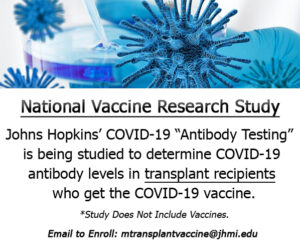 A new study for COVID-19 vaccine antibody testing is being led by the transplant team at Johns Hopkins. The purpose of this observational research study is to determine COVID-19 antibody levels in transplant recipients who get the COVID-19 vaccine. The study does not provide the vaccine or offer guidance as to whether or not one should receive a SARS-CoV-2 vaccine.
A new study for COVID-19 vaccine antibody testing is being led by the transplant team at Johns Hopkins. The purpose of this observational research study is to determine COVID-19 antibody levels in transplant recipients who get the COVID-19 vaccine. The study does not provide the vaccine or offer guidance as to whether or not one should receive a SARS-CoV-2 vaccine. A new study for COVID-19 vaccine antibody testing is being led by the transplant team at Johns Hopkins. The purpose of this observational research study is to determine COVID-19 antibody levels in transplant recipients who get the COVID-19 vaccine. The study does not provide the vaccine or offer guidance as to whether or not one should receive a SARS-CoV-2 vaccine.
A new study for COVID-19 vaccine antibody testing is being led by the transplant team at Johns Hopkins. The purpose of this observational research study is to determine COVID-19 antibody levels in transplant recipients who get the COVID-19 vaccine. The study does not provide the vaccine or offer guidance as to whether or not one should receive a SARS-CoV-2 vaccine.
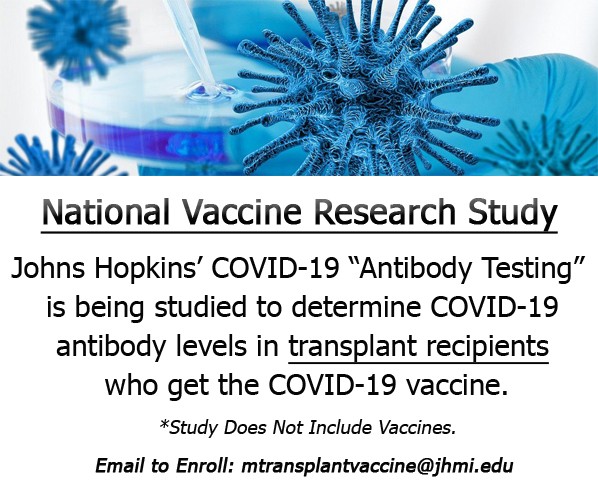
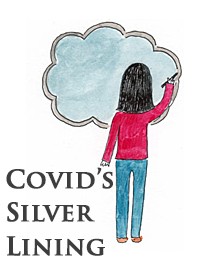
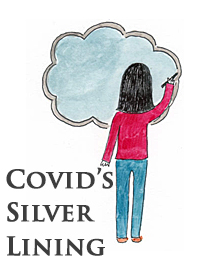 COVID 19 is forcing transplant centers to cancel live kidney donor transplants and put “donor testing” on hold. Hopeful recipients are emotionally struggling with this disruptive and unpredictable standstill. Their thought bubbles sound like: “Will my donor change their mind? Will my GFR hold? Will I be forced on dialysis or be taken off the list as I get sicker?”
COVID 19 is forcing transplant centers to cancel live kidney donor transplants and put “donor testing” on hold. Hopeful recipients are emotionally struggling with this disruptive and unpredictable standstill. Their thought bubbles sound like: “Will my donor change their mind? Will my GFR hold? Will I be forced on dialysis or be taken off the list as I get sicker?”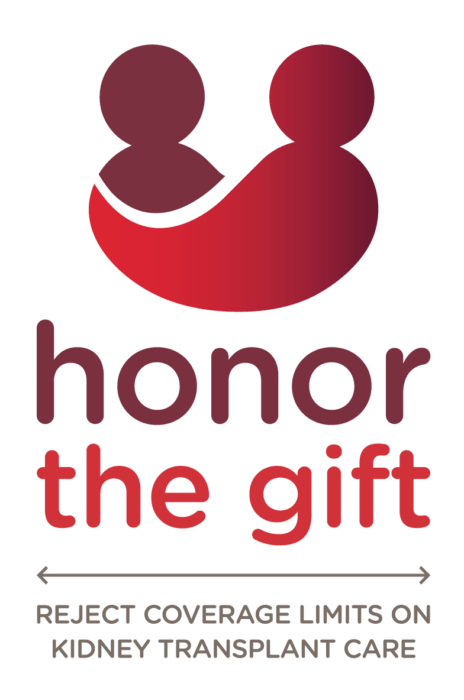
 HHS reports a 73 Million Dollar Savings Over 10 Years, by extending immunosuppressive medication coverage for kidney transplant patients under Medicare
HHS reports a 73 Million Dollar Savings Over 10 Years, by extending immunosuppressive medication coverage for kidney transplant patients under Medicare
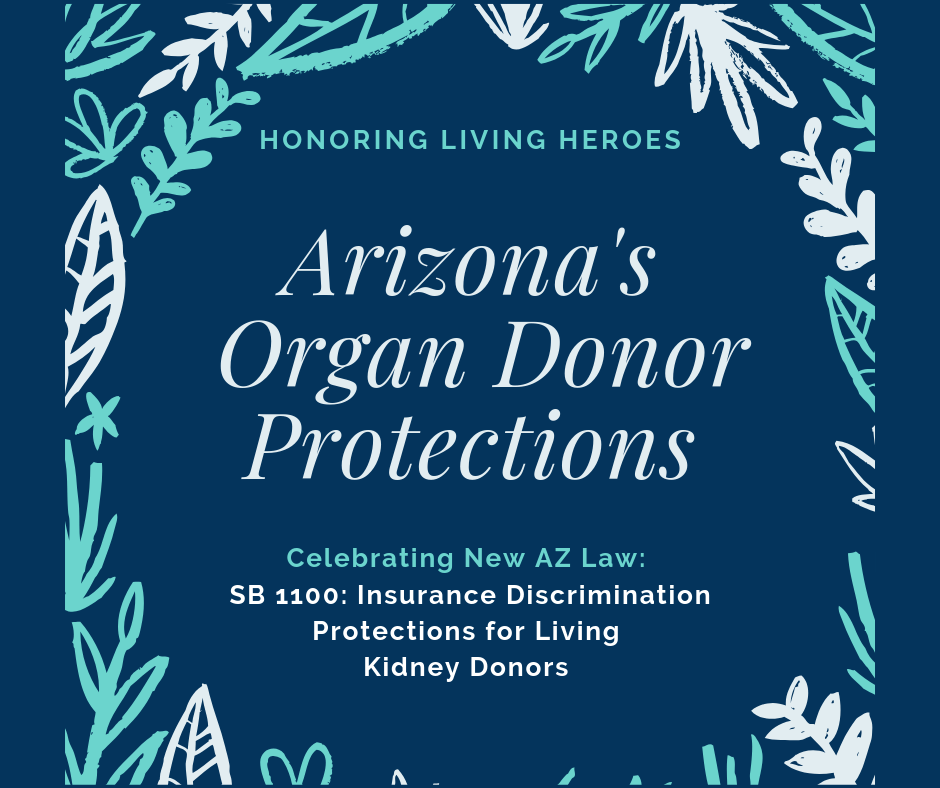
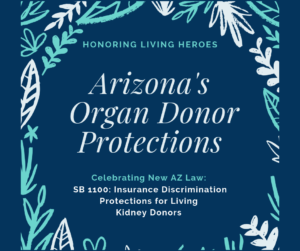 TransplantFirst Academy (TFA) takes great pride in bringing an initiative for Living Donor Protections to Arizona’s lawmaker’s ears. Thanks to passionate sponsors, Senators Carter and Brophy McGee, and Arizona’s lawmakers who voted in support of the bill for living organ donor protections, Gov. Ducey signed SB1100 into law last week.
TransplantFirst Academy (TFA) takes great pride in bringing an initiative for Living Donor Protections to Arizona’s lawmaker’s ears. Thanks to passionate sponsors, Senators Carter and Brophy McGee, and Arizona’s lawmakers who voted in support of the bill for living organ donor protections, Gov. Ducey signed SB1100 into law last week.
